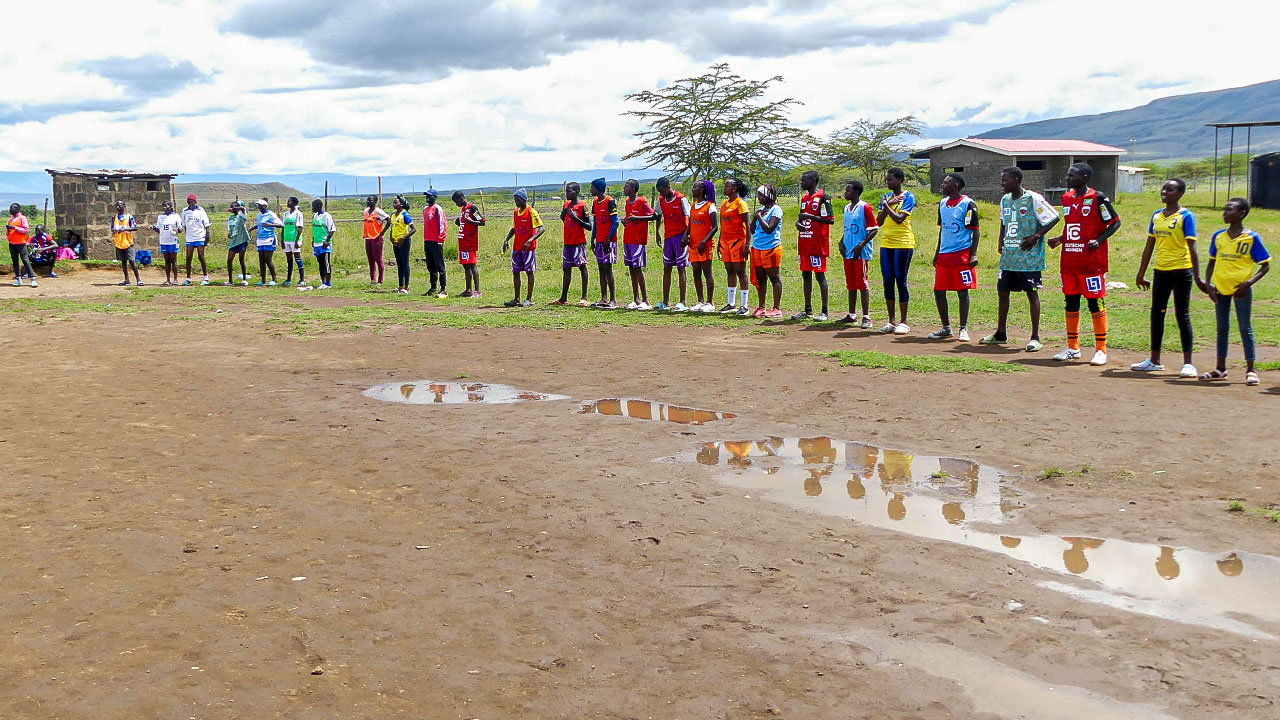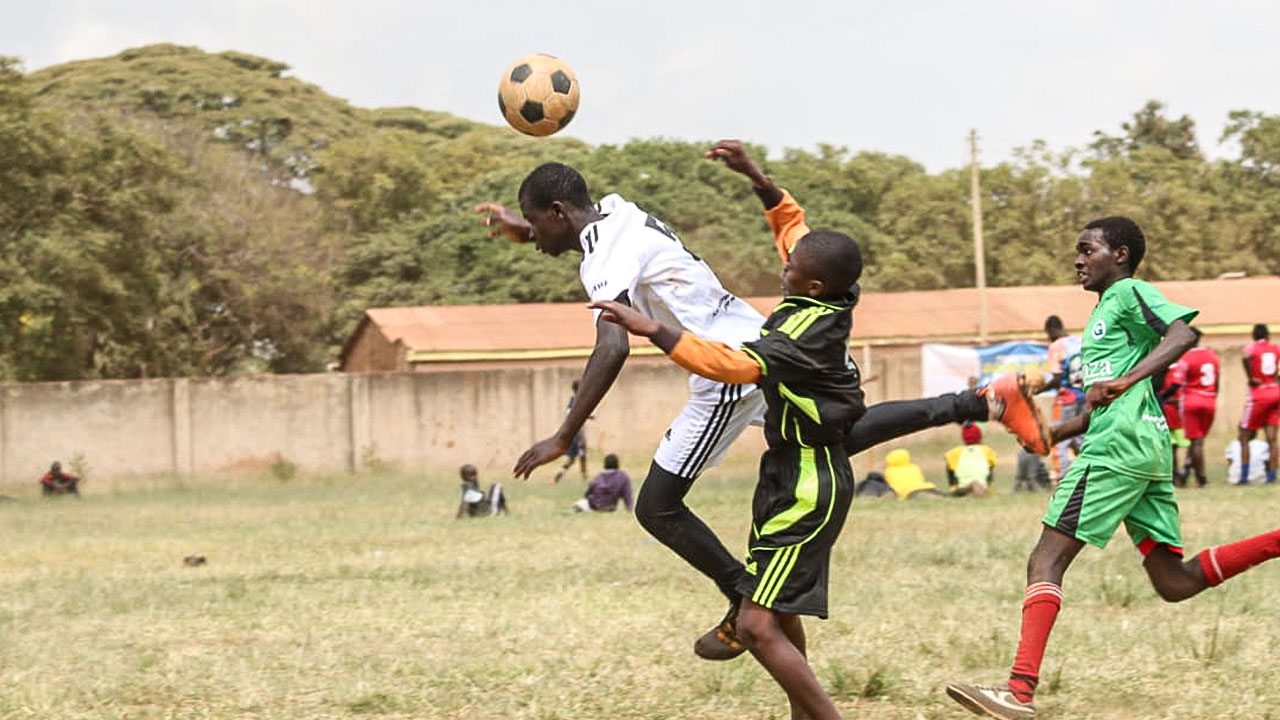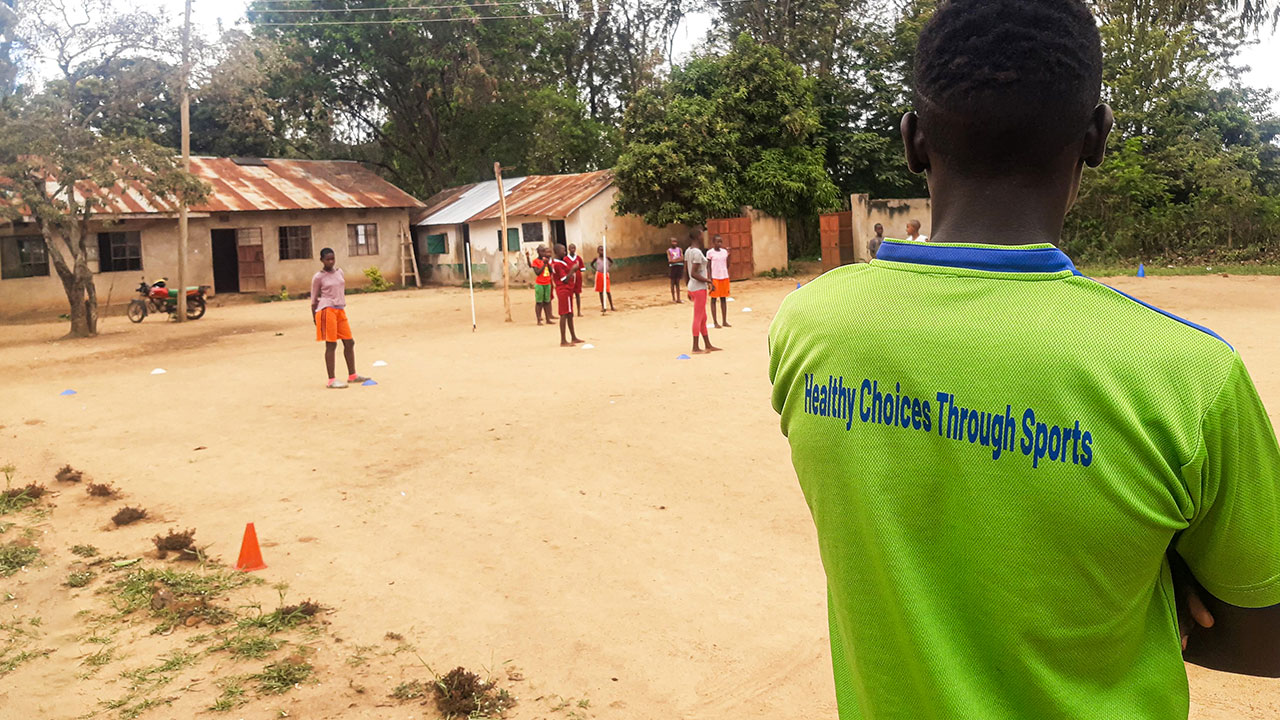Football is not just a game – it is an opportunity for children and young people to develop personally, integrate into the community and benefit from educational opportunities. As a volunteer coach abroad, you can help children and young people in disadvantaged areas.
You can help them not only to play football properly, but also to develop team spirit and discipline with limited resources and equipment to make a positive impact on their lives.
You can also use your expertise and ambition to train and develop football coaches in local community sports projects. You can support them in their existing work, or show them new and creative ways to help young people make meaningful use of their free time.
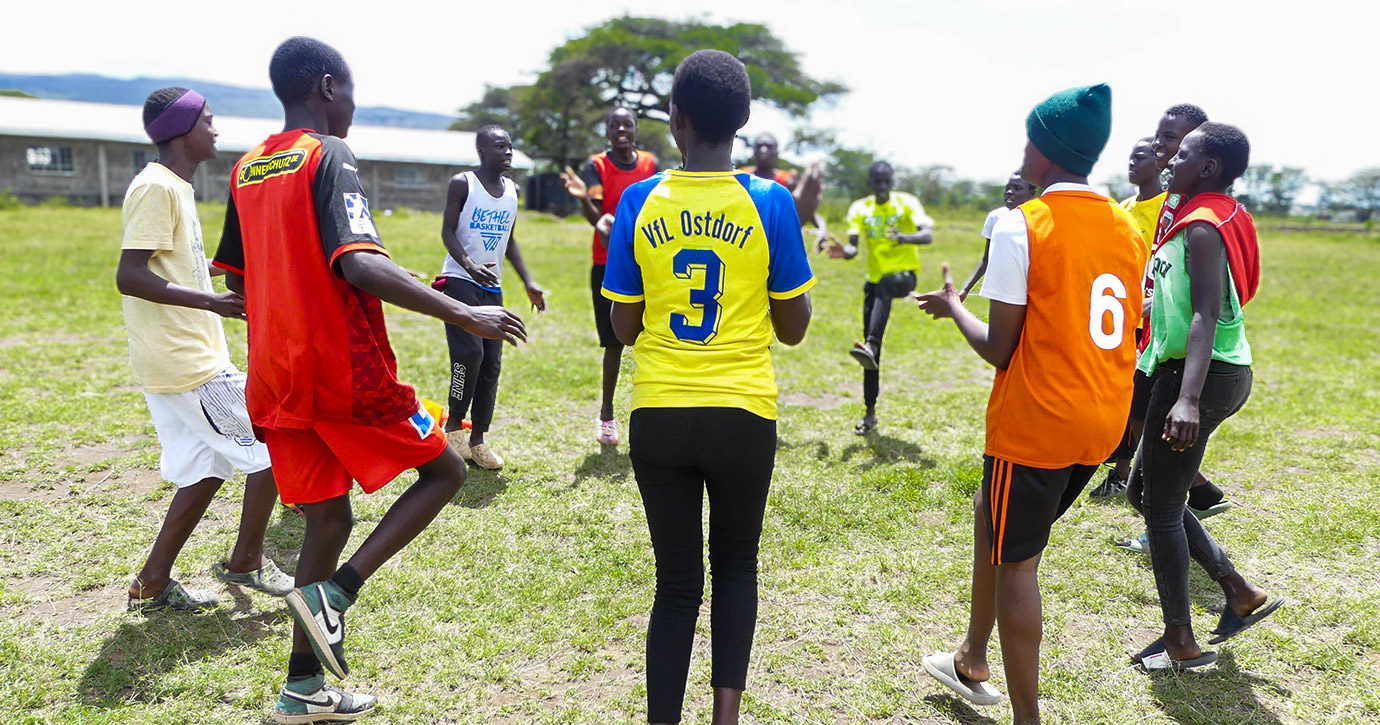
For many children and young people in poor countries, football is much more than a sport.
It is a passion and often one of the few ways to escape the often dreary or even criminal life of disadvantaged communities.
Of course, not everyone is or will become a Diego Maradona, a Lionel Messi or a Cristiano Ronaldo. But football offers these young people not only exercise and fun, but also hope, a sense of community and the chance of a better future.
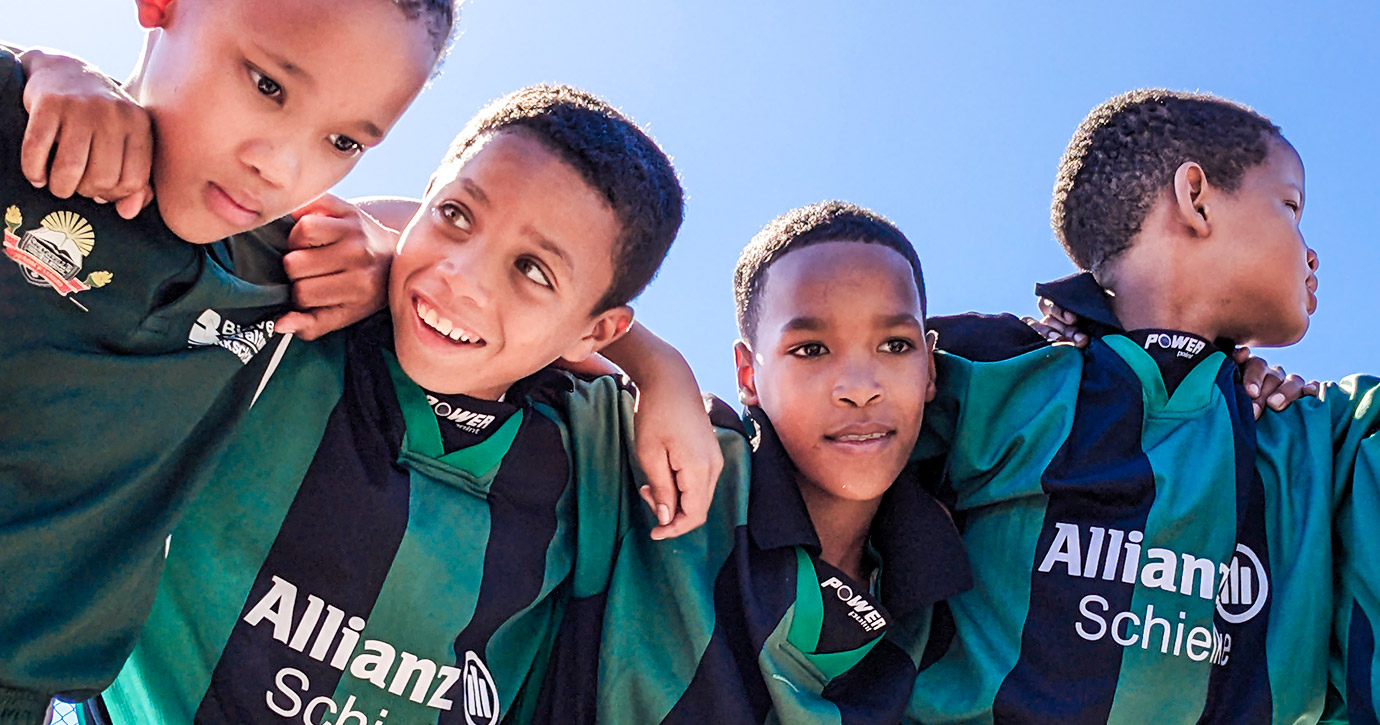
Dream Team: Your football skills combined with ambitious local coaches
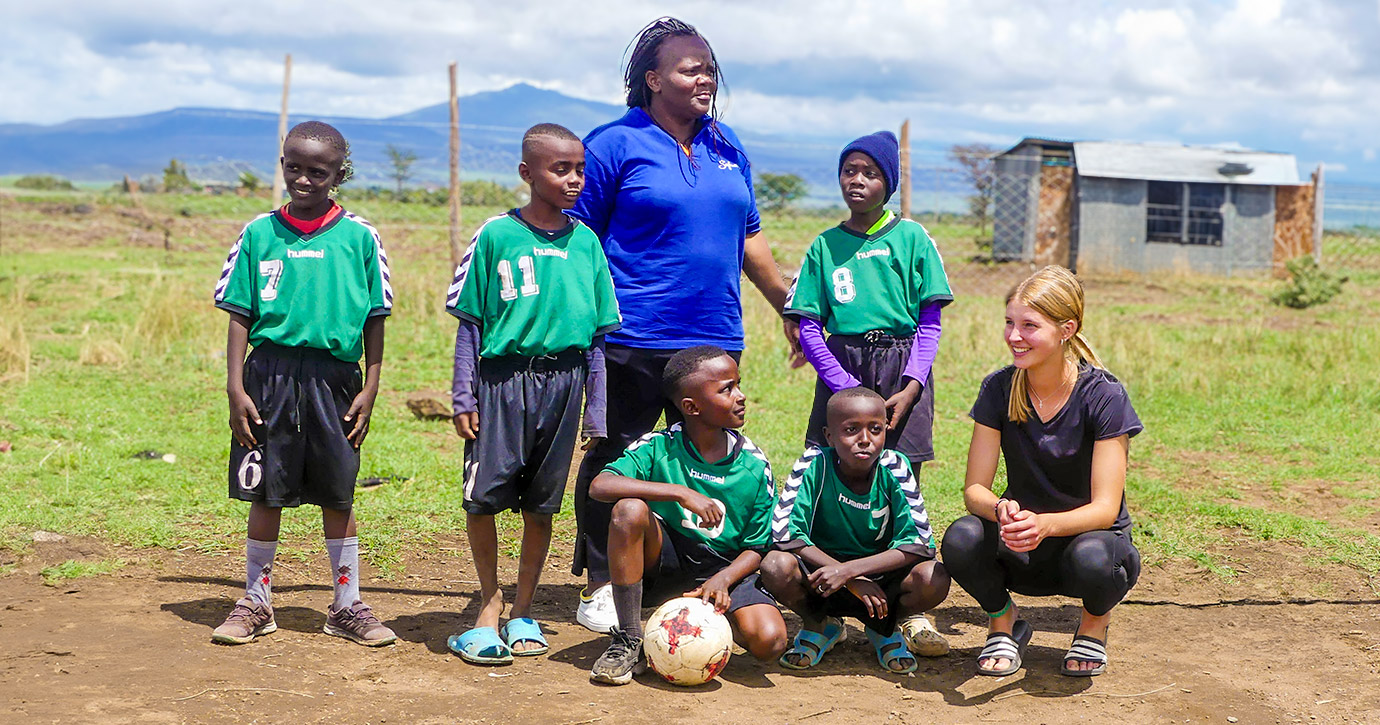
It is not just in deprived or crime-ridden neighbourhoods and places that football can play a life-changing role.
More generally, it offers young people a safe environment and a break in which to build relationships and channel their energy constructively. Football teams often become a kind of family, providing support and cohesion that these young people might not otherwise find. Through football, they learn important life skills such as teamwork, perseverance and fair play, which help them not only on the pitch, but in life.
As a volunteer coach, you can not only pass on these skills to young people. You can also share your own football experience with local coaches through practical training sessions or small workshops. With practical tips and direct feedback, you can help to improve the skills of local coaches and involve more players and coaches in the project.
For example, you can introduce innovative training methods, develop individualised coaching approaches and help to create training plans. This will not only improve the quality of the training, but also help the players to perform at a higher level.
Challenges and solutions for the integration of girls and young women in social football projects
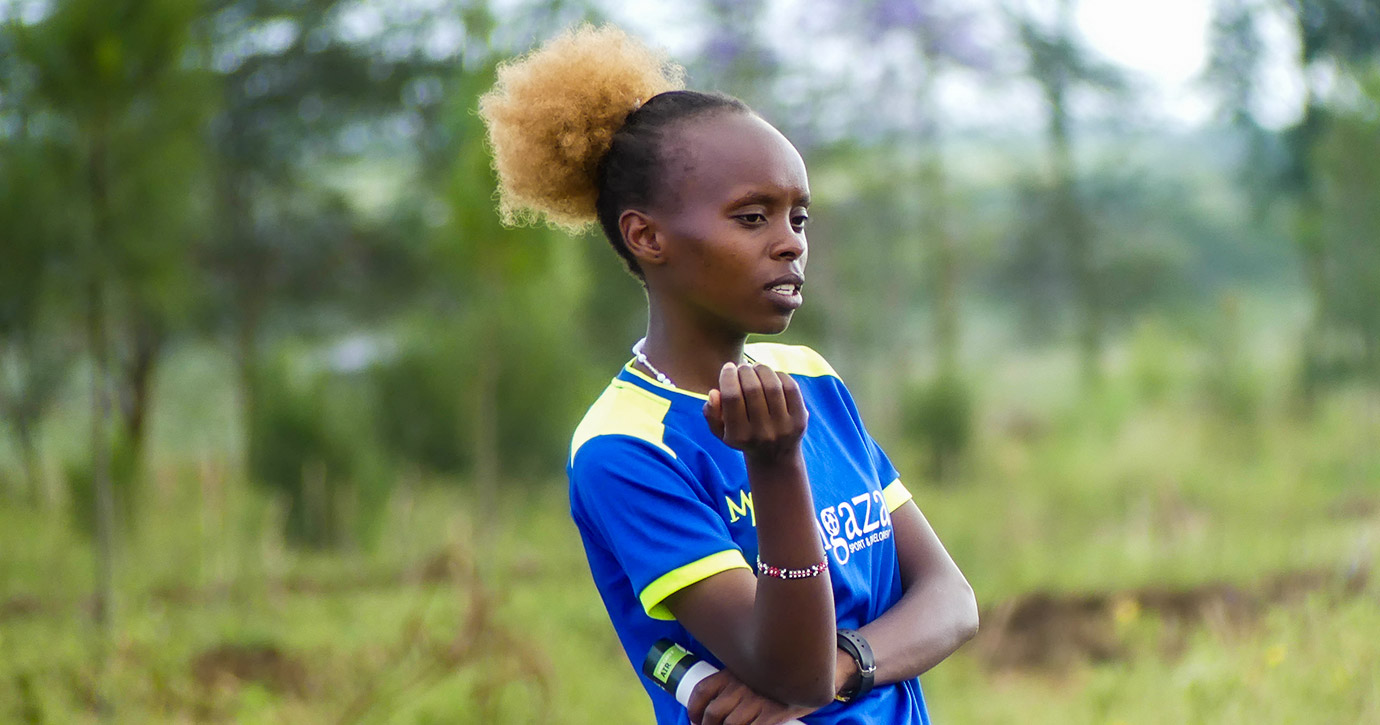
This quote by a FIFA member from the 1970s, referring to the introduction of women’s football in Germany, is fortunately outdated in many parts of the world today.
Yet in many countries, especially in patriarchal societies, girls and young women often face barriers. Not just in football, but in sport in general.
Despite their enthusiasm for a sport, cultural norms and traditional gender roles often prevent girls from pursuing their sporting interests or asserting themselves. However, despite these challenges, there are many ways to successfully integrate girls and young women into football and to actively participate in social sports projects.
To engage girls and young women in football, it is important to create a supportive and inclusive environment where they feel safe and respected. This can be achieved through specific girls’ football programmes, female coaches or adapted advertising and education. Girls should also be encouraged to take leadership positions in the project to strengthen their voice and encourage their participation.
What can you do as a volunteer coach?
For example, your project could use advertising to encourage girls and young women to play football.
To make them feel safe and respected, you can create an inclusive environment by organising girls-only football sessions, tournaments and events.
Talks in schools or community centres can also break down potential barriers and not only generate interest in football, but also encourage existing players to become more confident and active.
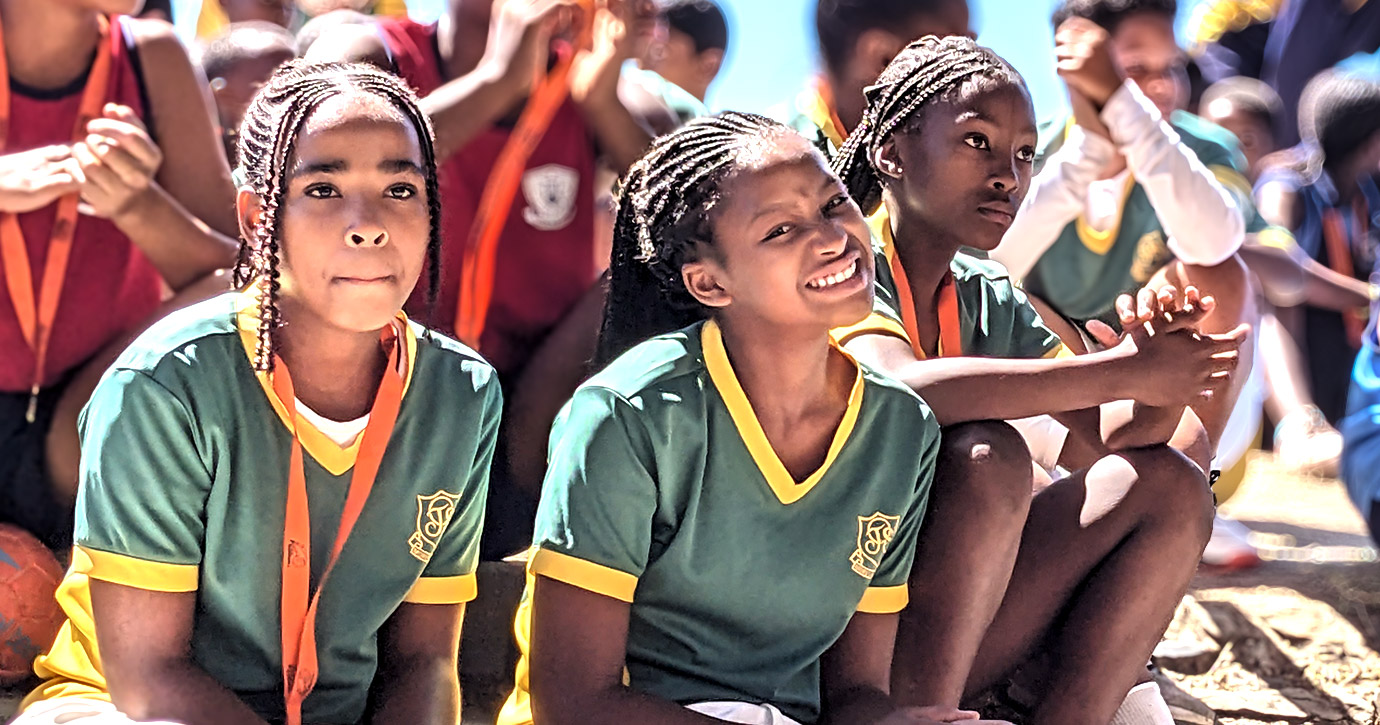
In addition, girls and young women in social sports projects should have equal access to resources, equipment and training opportunities.
Training times, the use of sports facilities and the financial support and distribution of funds, e.g. for football tournaments, should be the same as for boys. Equal opportunities and conditions are crucial for the development of skills and talents.
Even if gender-specific sports events or football training sessions tailored to the needs of girls do not necessarily sound like equality, the current conditions and the often low level of acceptance in the family or community are the basis on which to build.
As a sports volunteer, you can help promote girls’ football and support their integration into social sports projects.
You can use your knowledge and experience to create or improve an environment that promotes leadership and self-confidence. At the same time, you can act as a role model for gender equality in sport and help break down gender stereotypes and prejudices.
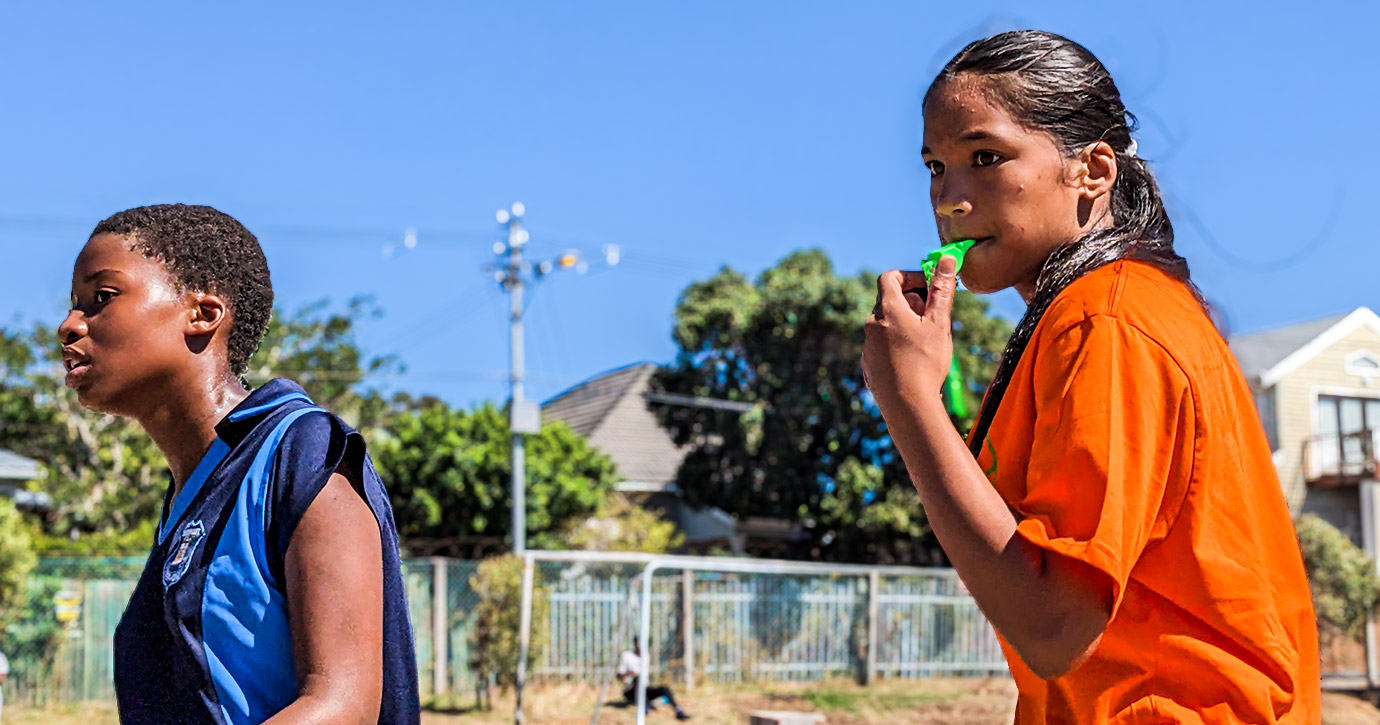
However, as a foreign coach, you should be aware of cultural and local issues and not be too ambitious.
Trust, cooperation with project leaders and acceptance by friends and family play an important role. Overall, the integration of girls and young women into football or social sports projects is often a complex challenge that requires a coordinated approach.
Improvise and create: Getting the most out of football training
Sometimes football is simple. At least according to former Dutch coach Johan Cruyff.
And indeed, it doesn’t take much to play and train football, whether in the countryside or in a cramped urban environment. A small open space is often enough to create an improvised pitch. An empty square, a courtyard, an open lawn, a deserted street or a semi-playable field next to a residential area – there are virtually no limits to the creativity of a pitch. And just a few square metres are usually enough for a small group to play an exciting game.
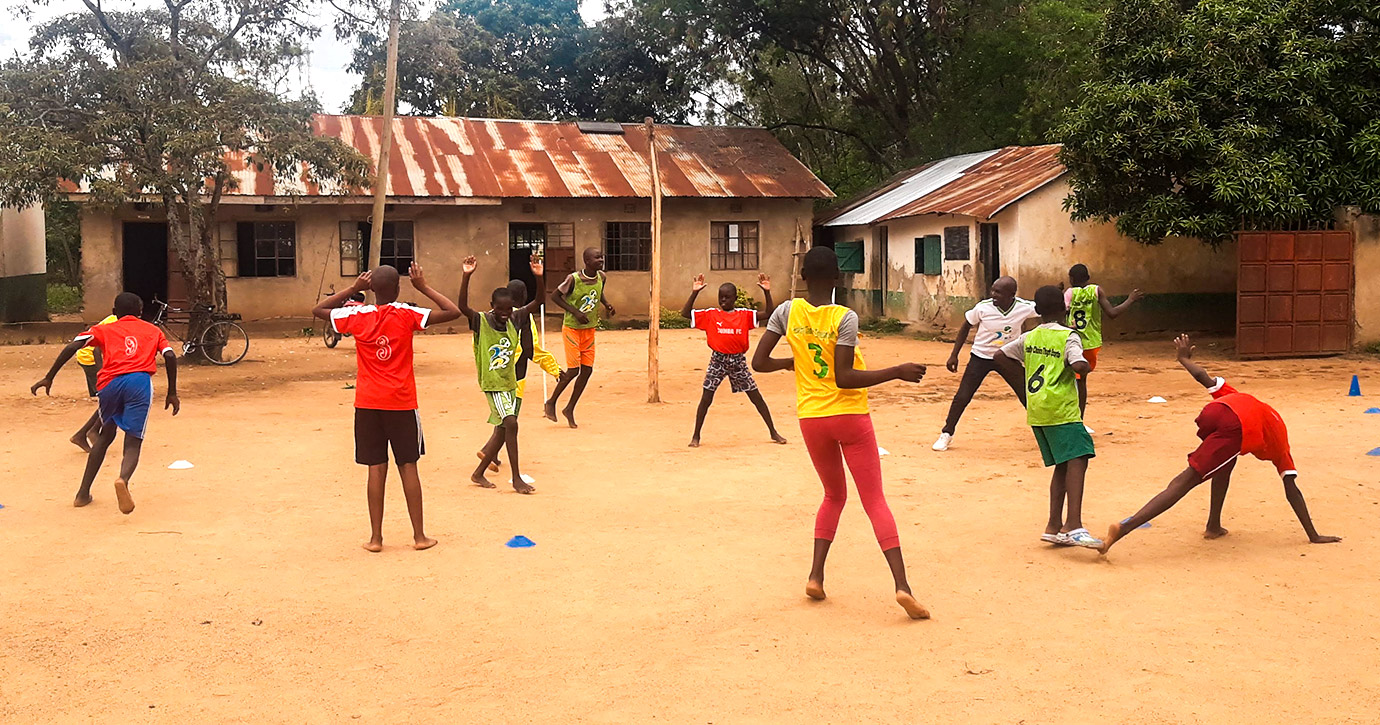
Improvisation and imagination are required, even if the equipment is limited.
Suitable goalposts include items of clothing or poles, two trees standing side by side, or the classic house wall with a replacement goal painted on it. And if the football ends up in the river or is broken, alternatives such as plastic bags filled with paper or clothes are a good stopgap.
Jerseys are often a luxury, but not really necessary to differentiate between teams. Just arrange the teams according to the colours of their shirts, or swap them if necessary. Dark against light or striped against plain also works. This is at least for training in between, in the afternoon after school or for a short training session just before dinner.
Many sports projects already have jerseys for the teams. The name of the club or town on the back may look familiar. This is because they are usually donations from local European clubs or from a youth team’s last season.
So if you have the opportunity to collect such donations from your sports club or local football club before your sports adventure, take them with you to your destination country after consulting your mentor.
The same goes for football boots, whistles, jerseys, ball pumps or anything else that could help your future project.
Football training methods that are creative and varied
Football training with children and young people should not only be educational, but most of all it should be fun and inspiring.
As a coach, you can use entertaining exercises to teach important football skills such as shooting, passing and tactical understanding. It also teaches teamwork and cooperation for success. Of course, this also provides variety and motivation to keep going.
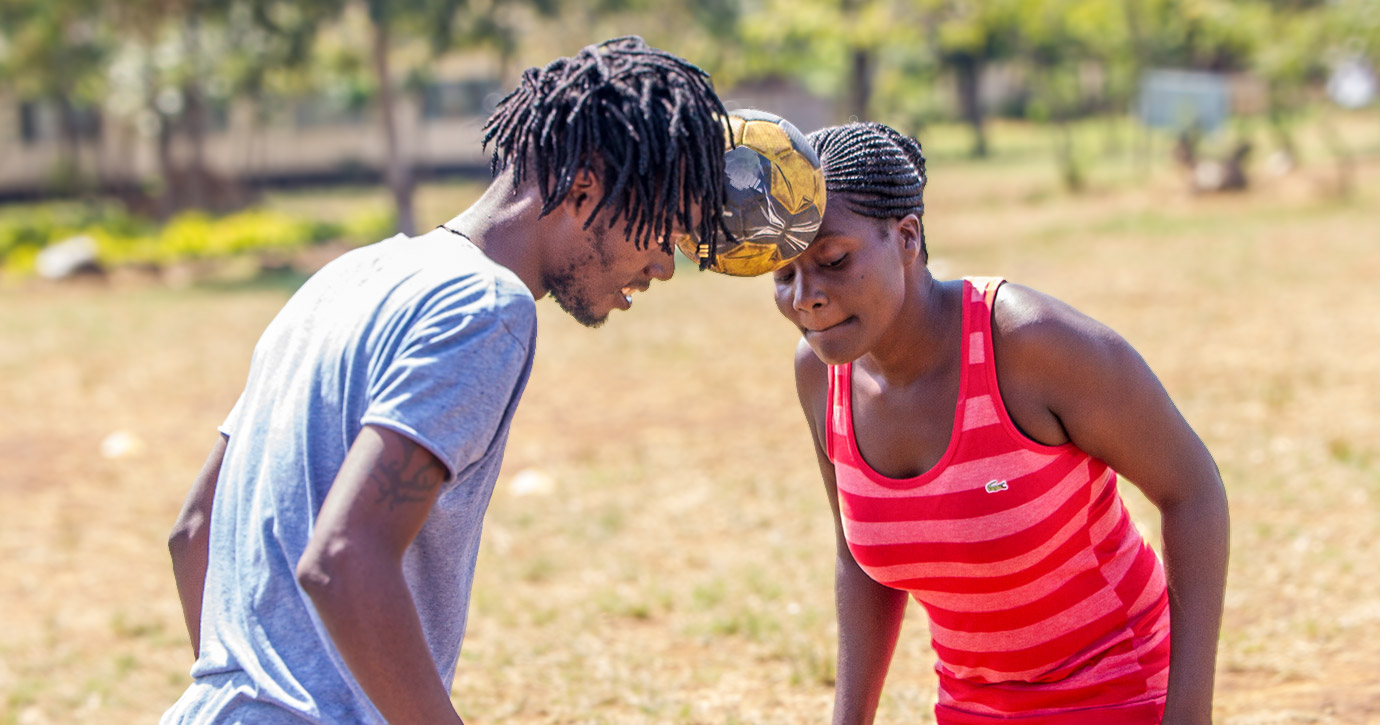
Football bowling
Simply set up a few empty plastic bottles or other cone-shaped objects, or a whole pyramid.
The children have to try to hit them with the ball and knock them over. Vary the distance to practise accuracy and shooting technique.
You can also create teams that compete against each other to make the task more exciting. Combine the game with other skills such as juggling or dribbling through obstacles before shooting.
Treasure Hunt
After dividing the pitch into two halves, place some balls as a ‘treasure’ in one of the first team’s halves.
The opposing team must try to bring the treasure to their own half of the pitch without being caught.
Agility, speed and coordinated teamwork are required.
Monster ball
A larger ball, such as an inflatable gym ball, is a great way to develop teamwork and strategy.
Players must try to kick the ‘monster ball’ over a predetermined target line while two or three opposing players try to stop them.
This is a great way to train accuracy under pressure.
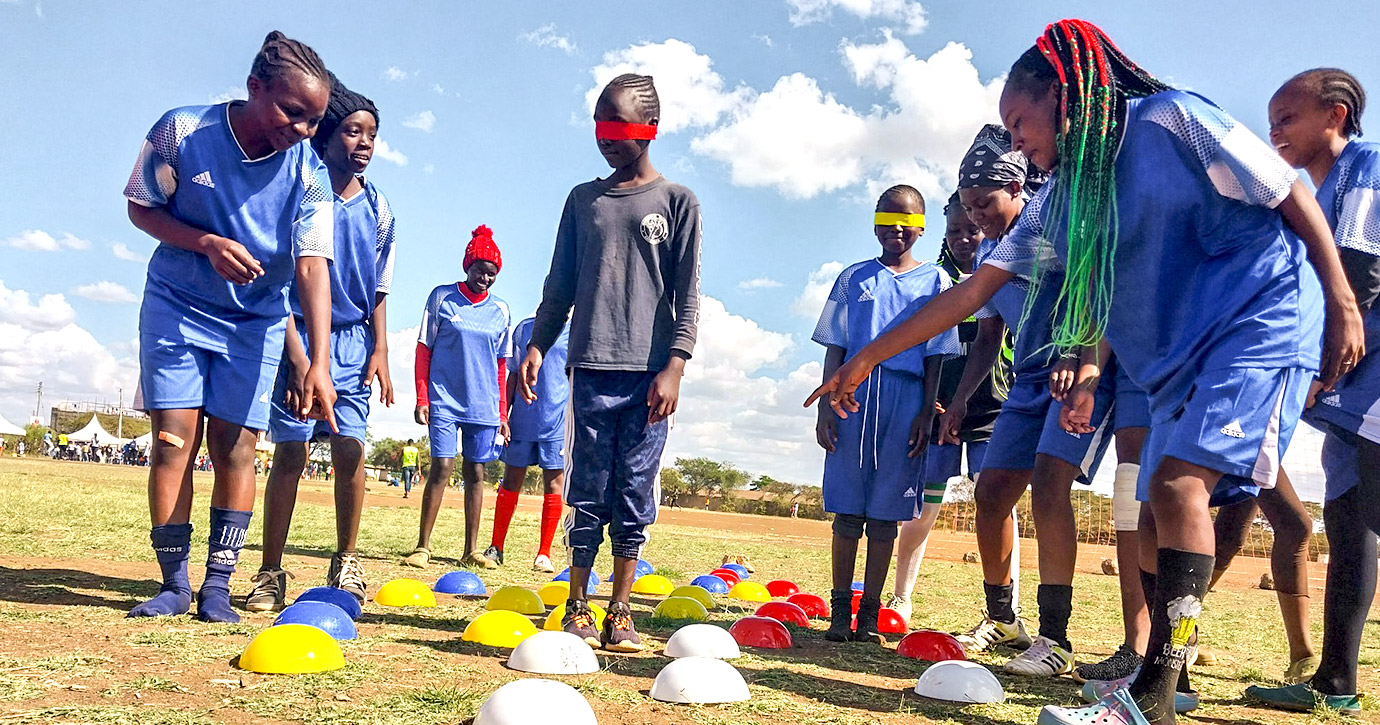
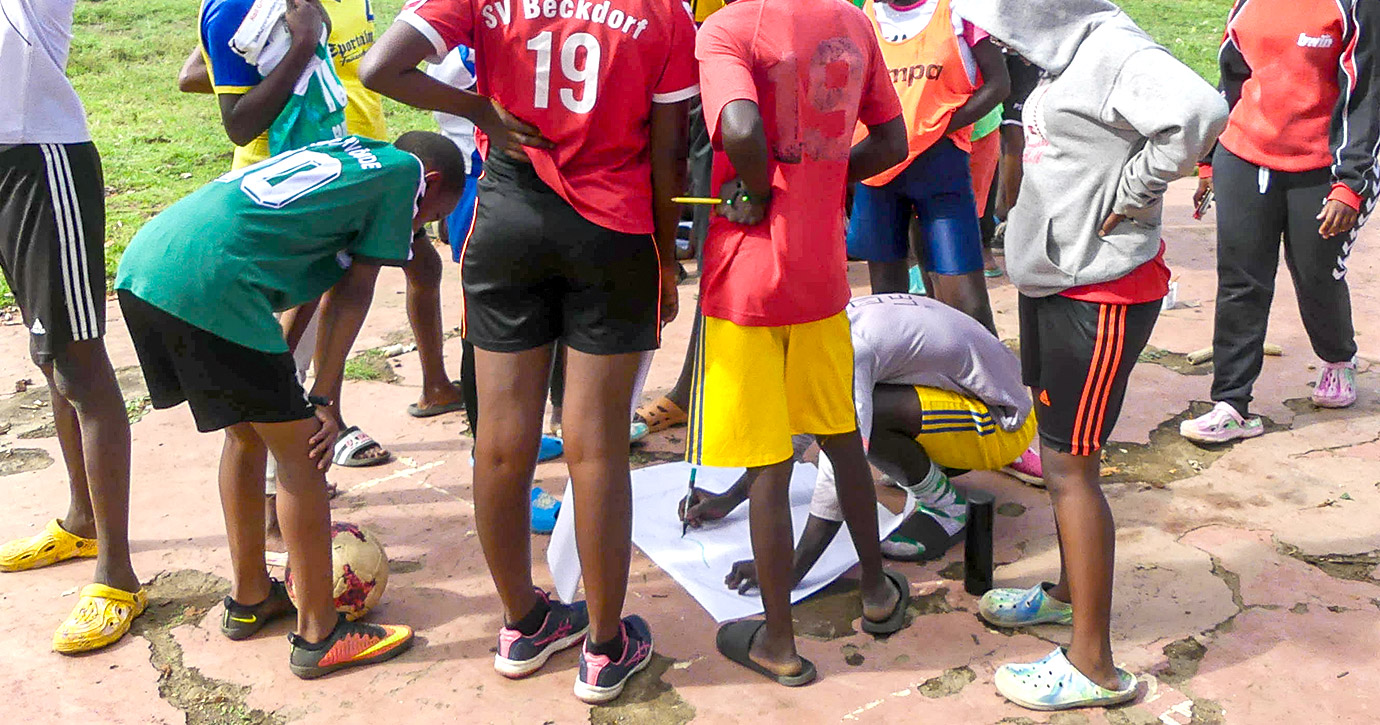
Football Golf / Football Darts
To practise precision, mark out different points on the course and have the participants reach the target with as few shots or passes as possible.
The ‘hole’ can be a car tyre, a door or any other small target. The aim is to train correct shooting technique, power and speed.
For the dart version, you can also mark a wall or even hang empty plastic bottles from a tree, which have to be hit from different distances. This also trains accuracy and shooting technique.
Mini tournaments and coached games
Develop responsibility and leadership skills with a mini-tournament organised and run by the players themselves.
You can set the rules and conditions. In case of major disagreements, you can help as a moderator and critically question the instructions of the organisers. Do not try to pursue your own goals.
After the game, if possible, sit down with all the players and discuss their actions in a feedback session.
As you can see, the simplicity, impact and appeal of football goes far beyond the physical aspects of the game.
It also affects the mental, social and economic dimensions of the lives of children and young people in disadvantaged communities. And even with limited means and resources, as a volunteer coach you have the opportunity to bring empowerment and positive change to a social sports project abroad.
